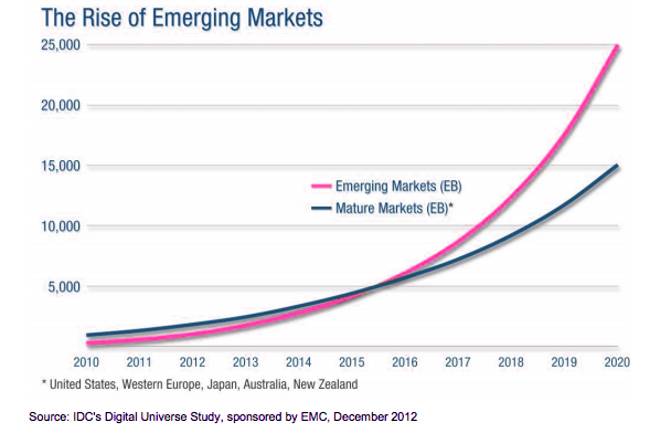This article is more than 1 year old
Craptastic analysis turns 2.8 zettabytes of Big Data into 2.8 ZB of FAIL
You know EVERYTHING about me, but can you show relevant ads? Nope
Open ... and Shut We can't seem to get enough of Big Data. In its Digital Universe in 2020 report (PDF), IDC forecasts Big Data-related IT spending to rise 40 per cent each year between 2012 and 2020, as the digital universe, now at 2.8 zettabytes (ZB), or 2.8 trillion GB, explodes to 40 ZB.
That's very, very Big Data. It's a pity, therefore, that we currently analyse a mere 0.5 per cent of it all.
Not that all of these data are useful. IDC expects that by 2020, just 33 per cent of the world's data will be useful if analysed. But the delta between today's 0.5 per cent of actually analysed data and 33 per cent that could be useful if analysed is unlikely to get dramatically better. We like to think of ourselves as hyper-analytical, what with our quantified selves and "measure everything" approaches to business.
But, as I've argued before, we're actually quite inept at analysing data, be the data big or small.
Not only are we bad at regulating our intake of information, to paraphrase Nick Carr, but we're also really bad at separating signal from noise. In hindsight, we think we see clearly, but even then we tend to miss the point.
Despite a world awash in data, just consider just two failings to analyse these data properly:
- Social networks hold immense quantities of data, and account for a significant chunk of the new data being created, according to IDC, yet "social networks aren’t using [our data] to create for us a social experience that is more like our real world, and frankly more in tune with our human-ness," as O'Reilly's Jim Stogdill argues. Heck, Facebook and its data hoarding ilk can't even serve up moderately useful ads, despite a tremendous amount of data collected on me.
- Despite an ever-rising amount of surveillance and its associated data, there's little evidence that it actually reduces crime. For example, a man was recently gunned down near Columbus Circle in New York City, which was caught on CCTV, but this has neither helped to catch the killer nor stop him. Glyn Moody hence perhaps correctly worries about the threat a surveillance society has on the rights of citizens, especially in light of its apparent futility.
Ironically, IDC calls out surveillance footage and social media as two of the best opportunities to apply Big Data. Perhaps things will get dramatically better by 2020, but it feels like the technologies we use to analyse our data tend to be backward-oriented, rather than real-time. This is changing, with the advent of Apache Drill and other technologies, but perhaps the real focus should be on highlighting what is happening, and then letting business managers intuit from these trends what they should do.
Compounding the problem of volume is where that volume is shifting - emerging markets:

Importantly, the areas with the most data to analyse are planning to spend the least amount of money to do so. So while the US will spend around $1.80/GB and Western Europe $2.50/GB to manage Big Data, China (~$1.30/GB) and India (~$0.95/GB) are much lower. As IDC notes, this disparity can partly be explained by differing economic conditions but "also represents differences in the sophistication of the underlying IT, content, and information industries — and may represent a challenge for emerging markets when it comes to managing, securing, and analysing their respective portions of the digital universe."
Open-source data solutions will help to lower the costs of Big Data storage and analysis for all regions, but the far bigger problem is still knowing what to do with all these data. We still don't have much of a clue. Will we become dramatically better at managing our data by 2020? What do you think? ®
Matt Asay is vice president of corporate strategy at 10gen, the MongoDB company. Previously he was SVP of business development at Nodeable, which was acquired in October 2012. He was formerly SVP of biz dev at HTML5 start-up Strobe (now part of Facebook) and chief operating officer of Ubuntu commercial operation Canonical. With more than a decade spent in open source, Asay served as Alfresco's general manager for the Americas and vice president of business development, and he helped put Novell on its open source track. Asay is an emeritus board member of the Open Source Initiative (OSI). His column, Open...and Shut, appears three times a week on The Register. You can follow him on Twitter @mjasay.
